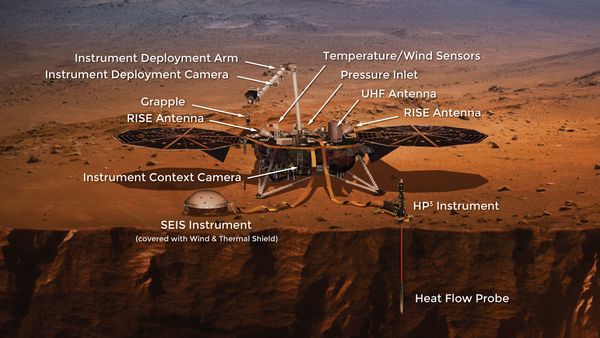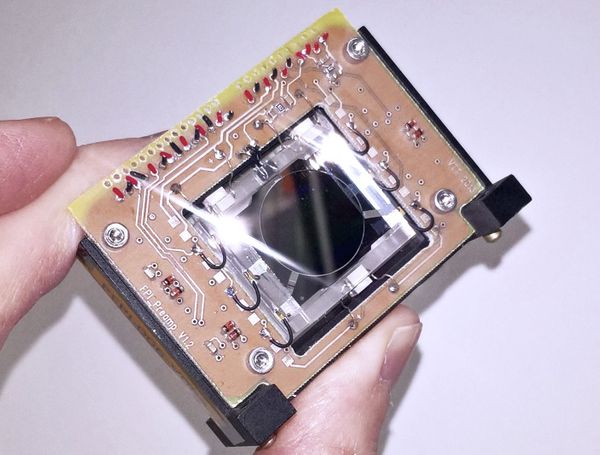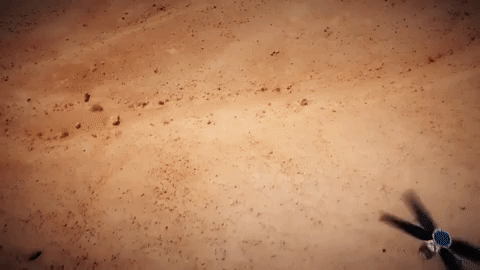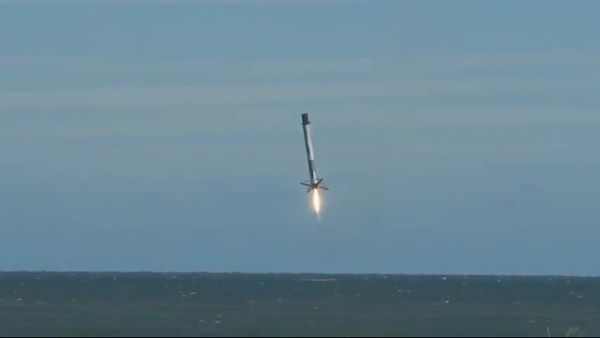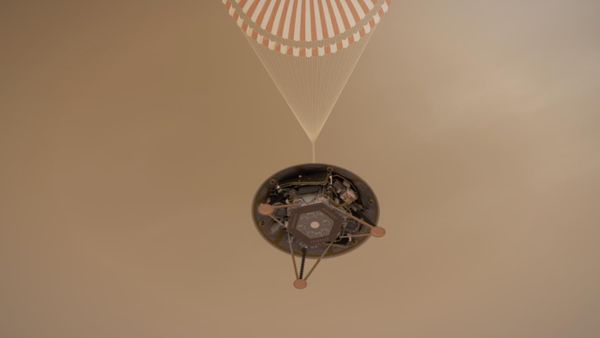A helicopter grapples a parafoil attached to an Electron flight test article during testing. Credit: Rocket Lab
Rocket Lab announced Wednesday that is had successfully tested mid-air recovery of its Electron rocket's first stage. Electron is the company's small-satellite launcher that has flown 11 times since 2017. Rocket Labs has ambitious plans to increase the flight rate of Electron and rocket reusability is a key component. This test is a critical development milestone in safely recovering Electron booster after launch.
Parachutes Vs Propulsive Landing
Electron is not the first rocket to attempt recovery via parachutes. SpaceX's Falcon 1 rocket was designed to be recovered after being slowed down with parachutes although this functionality was never successfully demonstrated. The much larger Falcon 9 vehicle included parachute systems as well, but SpaceX pivoted to propulsive landing.
Other space companies are also considering parachute recovery for full or partial reuse of their launch systems. United Launch Alliance's (ULA) Sensible Modular Autonomous Return Technology (SMART) reuse plan combines an inflatable hypersonic decelerator with a parachute system to recover the engines of its upcoming Vulcan rocket. Rocket Lab plans to include a similar inflatable decelerator, called a ballute, to slow down the rocket from supersonic to subsonic speeds. Expandable decelerators increase drag and terminal velocity, reducing the aerodynamic load on the rocket body and reducing the chance of parachute failure during deployment.
Rocket Labs' complete recovery system includes an inflatable ballute decelerator, a parafoil parachute system, and mid-air retrieval by helicopter.
Next Steps
The Electron has already flown with upgraded avionics and reaction control systems which have maintained attitude control of the booster from stage separation all the way to impact on the surface. Along with these upgrades. Rocket Lab has plans to recover the first stage on an operational mission towards the end of 2020. The stage will descend on parachutes until softly landing in the ocean and a boat will recover the rocket from the water.
Rocket Lab plans to greatly increase its launch rate, and production of the first stages is currently their bottleneck. Rocket Lab CEO Peter Beck explained to ArsTechnica that "we need to quadruple production over the next couple of years" and that "If we could reuse it once we've effectively doubled production".
Check out the full video of the test below.



